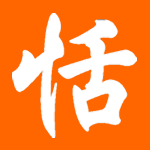to: tiangotlost@gmail.com
date: Sun, Oct 17, 2010 at 11:36 PM
subject: Tattoo translation
Hi Tian,
I have a friend from work who has a tattoo on his arm. Since I knew about your blog I tried taking a pic of it & check with you if he really knows the meaning of what he has or not. He said it's written in Chinese and it says something like - there's nothing like mom.
Thanks a lot & love your blog.
Kfir
The first character does not exist in written Chinese. However, there is one character 冇 only exists in written Cantonese, which means "not have". Of course, that is not what has been tattooed here.
Tattoo does not mean "there is nothing like mom", rather "not have the likeness of my mother".


If you add "人" into it - 冇人像我娘, it sounds OK. I don't think Cantonese speakers would likely word it like that, though. I'd guess the first character was more a mistaken attempt at 有.
ReplyDeleteIt's more likely that the first character is a typo for 有.
ReplyDeleteFirst character looks more like misspelled 有 to me. Makes a lot more sense too than random Cantonese.
ReplyDeleteYeah, I see it as being a typo for 有 as well. Of course, that means the exact opposite of what he thinks it means. Not to mention that in Japanese, it's used for inanimate objects...
ReplyDeleteTo muddy the waters further, in Japanese the last character (娘, musume) means "daughter".
ReplyDelete冇人像我娘:
ReplyDelete冇 = to have not in Cantonese. But the first character is not it: It has one stroke added in. It's actually a typo for 有, but it doesn't make sense what dialect you use.
像 is used in both Cantonese & Mandarin, but the phrase "像我娘" is not used in spoken Cantonese, but rather 似我媽 or 似我母親(大人) is used.
冇人似我媽 or 冇人似我母親(大人) = "No one's like my mother" in Cantonese.
The OP said Chinese, so why do people always bring up Japanese when it's totally irrelevant to the topic? Japanese sometimes don't use the Chinese meanings of words like Modern Chinese but rather from Ancient Chinese, and sometimes it's only used for it's phonetic not semantic values, so sometimes it's best not to bring the Japanese language into discussion unless it's relevant to the topic being discussed.
Seeing as I suggested "冇人像我娘", I'm guessing your corrections are directed at me. I am aware that the first word is not 冇, I also said that it's more likely a mistaken 有, and I did also say that it wouldn't be used in Cantonese. I don't know why you're correcting me.
ReplyDeleteI just said that 冇人像我娘 sounds OK because at least it has proper words and almost catches the meaning if you mash up Cantonese and Mandarin.
@ Jojo: I was just explaning in more details of what would actually be said in Cantonese. I'm specifically telling you what it is in Chinese characters. I'm just correcting what's wrong, not correcting everything you've said. Actually, 娘 is a bit archaic in Cantonese, unless you are being funny or sarcastic.
ReplyDeleteI actually think the first character is a mash up of 冇 & 有.
@ Jojo:
ReplyDeleteBut 冇 mostly isn't understood by the Mandarin-speaking Chinese population. 冇 is a Cantonese word.
I know that 冇 is a Cantonese word...which is why I said..."almost catches the meaning if you mash up Cantonese and Mandarin"...!
ReplyDeleteTo the other Anonymous: Sorry, it sounded like you were correcting me rather than elaborating so I took it to be the former. And yes, 娘 is archaic. I don't know about Southern China but certainly nobody in Hong Kong would say it.
Problem is there's a single stroke inside "冇". It looks like a cross between 有 (have) and 冇 "not(in cantonese)".
ReplyDeleteAlmost like he couldn't make up his mind whether he looks like his mom.
in Taiwan, 娘 when used to mean "mother" is more akin to "mama" as in, "yo' mama". So "my mom" is "我媽", or if you want to be formal, 我的母親. Using 娘, if the first character is a miswritten 有 would sound, in Taiwan Guoyu, like "A lotta things look like my mama". Except nobody uses it to talk about their own mother, they use it to talk about YOUR mother (as in the generic concept of yo' mama).
ReplyDelete